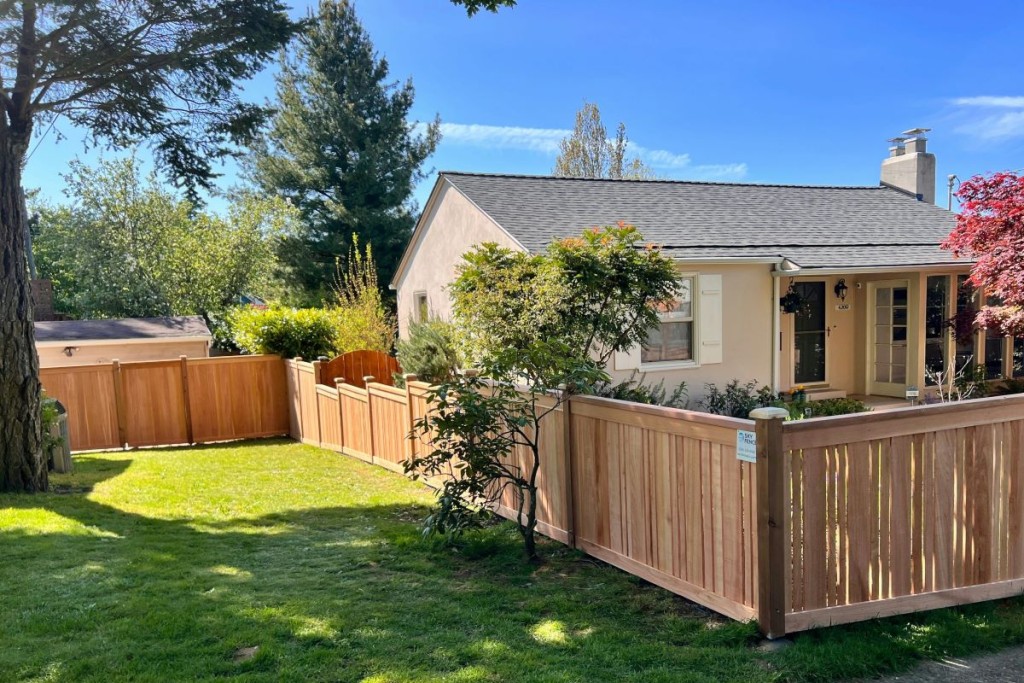
Key takeaways
- Adverse possession is when someone uses part or all of your land for long enough, without your permission, that the law can give them ownership.
- It exists to settle long-standing property disputes and ensure land isn’t left unused.
- It’s rare, but it can happen — most often in boundary disputes or with abandoned property.
When you buy a home, you naturally assume you’ll have full ownership and control over it and the land it sits on. And that’s almost always the case. But in rare cases, through an action called adverse possession, someone could gain title to your property.
While the details vary by state, every state has some form of adverse possession law. These laws generally require many years of occupation plus specific legal conditions before someone else can claim your property. Understanding how it works can help you spot potential issues and protect your land.
What is adverse possession in real estate?
Imagine your neighbor builds a fence a few feet into your yard. You don’t notice or don’t object. Years pass. Eventually, the law might say that the strip of your yard now belongs to them — even though you bought it — because they’ve used it as their own for long enough without your permission.
That’s adverse possession.
Don’t worry – adverse possession isn’t something that could happen over the course of just a few months. In most states, it takes 5 to 20 years of uninterrupted use before someone can make a legal claim.
Additionally, certain common law requirements must be met, which we’ll cover below.
Why does adverse possession exist?
Adverse possession laws weren’t created to reward trespassing. They exist so that:
- Land isn’t left sitting unused indefinitely
- Long-standing property line mistakes can be resolved
- Disputes have a legal endpoint after many years
The five conditions for a valid adverse possession claim
Every state’s rules are slightly different, but most require the following:
1. Possession must be hostile
The definition of a hostile claim varies by state. Typically, this means that the trespasser is using the property without an existing agreement or license from the landowner. There are three legal definitions of hostile that states will follow before it comes to adverse possession:
- Simple occupation: This claim is typically followed by most states. It defines hostile as the simple occupation of the land. The trespasser doesn’t have to know that the land has a true owner.
- Awareness of trespassing: In awareness of trespassing, the trespasser is aware that they have no legal right to be on or use the property.
- Good faith mistake: This rule requires the trespasser to have made an innocent mistake in occupying the property. For example, they may have relied on an invalid or incorrect deed, making them unaware of the boundaries of the property. Only a few states follow this rule.
Example: A neighbor builds a fence based on an incorrect survey, unintentionally enclosing part of your yard.
2. Possession must be continuous
The possessor must occupy the property without significant interruption for the full statutory period. For example, they can’t use the land for one season, leave for several years, and then return.
3. Possession must be open and notorious
The occupation must be obvious enough that the true owner could reasonably notice it. This might include building structures, planting gardens, or making visible improvements that cross property lines.
4. Possession must be actual
Actual possession means that the person making the claim is currently in possession of the property for the duration of the statutory period. This means that they are making use of the property by maintaining it and, depending on state law, paying taxes on it. Usually, the trespasser can establish actual possession by documenting their efforts to maintain and improve the land.
Essentially, actual possession means that the trespasser is physically present and treats the land as if they were the owner.
In California adverse possession cases, the person making the claim must possess the land in question for at least five years.
5. Possession must be exclusive
Exclusive possession means that the trespasser must possess the land solely on their own. Additionally, they cannot share possession with anyone, including the owner. Ownership must be without interruption over a specific period.
Essentially, the trespasser can’t return or give up the property at any time. Each state may have a different time restriction on this possession claim.
Example of adverse possession
Many adverse possession cases don’t involve someone taking over an entire home or property. More often, they’re small, everyday encroachments that go unnoticed for years.
A common example is when a property owner stops maintaining a vacant lot they own on the edge of town. Over time, a neighbor begins using the lot as part of their backyard — mowing the grass, planting trees, and even putting up a small shed. The use is open and obvious, but the true owner never objects or visits the property. After the required number of years in that state, the neighbor may be able to claim legal ownership of the lot through adverse possession.
How to prevent adverse possession
Adverse possession certainly sounds scary, but it’s also quite rare. And as a property owner, there are plenty of steps you can take to prevent your property from being adversely possessed.
Identify your property lines
Some adverse possession happens because the parties don’t know where their property lines are. You can prevent this by reviewing your deed or plat, surveying your property, or checking your county’s public records.
Get an easement
An easement is a legal agreement that allows your neighbor to use a portion of your property without risk of adverse possession. An example of when an easement may be used is if you allow a neighbor to park on your property.
Stay present
It’s important to be present on your property. Being present on your property rather than purchasing and abandoning it helps you keep tabs on what’s happening and gives you a legal defense against adverse possession.
Check tax records
In some states, a trespasser must have paid property taxes on the property to be granted ownership. If you think someone may be trespassing, check the local tax records to see if they’ve made payments on your property.
Rent or lease the property
You can prevent adverse possession by renting out the property or leasing it. The legal agreement invalidates the hostile element of possession and helps ensure the occupation has an end date.
Notable adverse possession cases
Although they are relatively rare, a number of adverse possession cases have made their way through the court system. Below are a few historic examples:
Adverse possession FAQs
Does adverse possession apply to new owners?
Adverse possession can be applied in the case of a newly purchased home. Taking precautions like familiarizing yourself with the property lines and monitoring the property can prevent this.
What is the statute of limitations on adverse possession?
The statute of limitations on adverse possession depends on where you live and the nature of the possession. Some state laws allow someone to claim adverse possession within just 5 or 7 years if they are listed on the deed or have paid property taxes. However, many states require a period of either 10 or 20 years.
How do you beat adverse possession?
The best way to beat adverse possession is to be aware of your state’s laws, be aware of your property lines and be proactive in preventing someone from adversely taking control of your property. Legal agreements like leases or easements can help prevent someone’s presence on your property from giving them a claim of adverse possession.
What do I do if someone claims adverse possession of my property?
If someone claims adverse possession of your property, the first step should be to cut it off at the knees. For example, if you notice a neighbor building a fence or planting trees on your property, you should have it removed immediately. However, if enough time has passed that the other party might have a true claim, you’ll want to hire an attorney.
A final note on adverse possession
Adverse possession is an interesting legal concept whereby someone can take ownership of someone else’s land in certain situations. It’s a rare occurrence and generally involves many years of possession and a few important characteristics. And as a property owner, there are plenty of proactive steps you can take to keep it from happening to you.
The post What Is Adverse Possession and How Does It Work? appeared first on Redfin | Real Estate Tips for Home Buying, Selling & More.





Join The Discussion